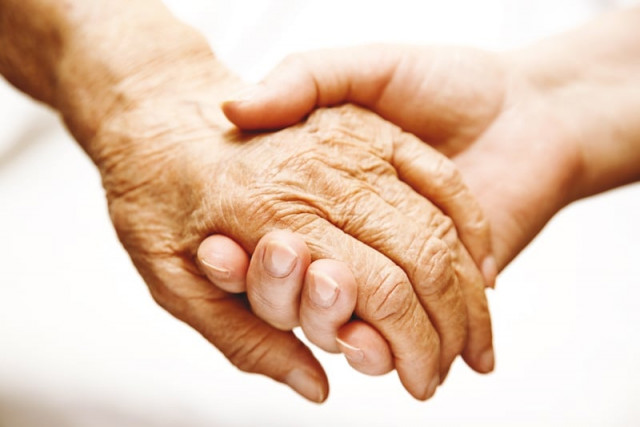Health: Age-old remedies
An inclusive approach towards the senior population in Pakistan is the need of the hour

Health: Age-old remedies
The elderly are stigmatised as unproductive, a burden on society and labelled as uninformed. This can be addressed through:
• Fostering intergenerational relations through positive media reporting and public image campaigns. Journalists should select positive words when referring to the elderly.
• Conducting free seminars and imparting community education at hospitals and universities to educate people about the illnesses that afflict elderly people.
• Creating programmes in which the elderly can volunteer, participate in and also conduct.
• Life-long learning and education for the elderly should be promoted so that they can keep up-to-date with technology.
• Allowing them the freedom to pursue their personal interests.
• Socialising with extended family and friends.
The typical sedentary lifestyle, contributing to immobility disorders, loss of muscle mass and an increased risk of falling, can be countered by:
• Getting them involved in group-based activities, light sports and exercise, which can also be undertaken at homes.
• Encouraging independence in public places and at home by installing railings along walls, ramps for wheelchairs, elevators and escalators, securing remotes with bigger buttons, intercoms in rooms, employing helpers in offices and supermarkets, enlarging the font on street signs and pre-allotting parking places.
The lack of focus on geriatric care could be tackled by:
• Establishing geriatric departments in healthcare facilities.
• Setting up geriatric outpatient clinics in all large-scale hospitals.
• Focusing on geriatrics at academic levels for medical students.
Older people are forcibly made unproductive by being excluded from economic participation. Instead,
• The labour market must recognise older people as consumers. This can be done by recognising their specific needs, interests and preferences as a separate consumer group.
• Flexible part-time jobs should be created.
• Retirement age should be increased, or conversely, individuals should be allowed to work for as long as they are able and willing.
The elderly are excluded from political participation. Instead,
• Labour organisations, non-governmental organisations and political parties for older people should be established.
• Trade unions can represent the elderly and express their needs and opinions on a political platform.
Source: Journal Article: ‘Ageing in Pakistan — A New Challenge’ — Saniya R. Sabzwari & Gohar Azhar
United Nations Economic Commission for Europe ‘Policy Brief on Ageing’ No.4 November 2009
Simoneel Chawla is a subeditor for The Express Tribune Magazine. She tweets @simoneelc
Published in The Express Tribune, Sunday Magazine, October 19th, 2014.



















COMMENTS
Comments are moderated and generally will be posted if they are on-topic and not abusive.
For more information, please see our Comments FAQ